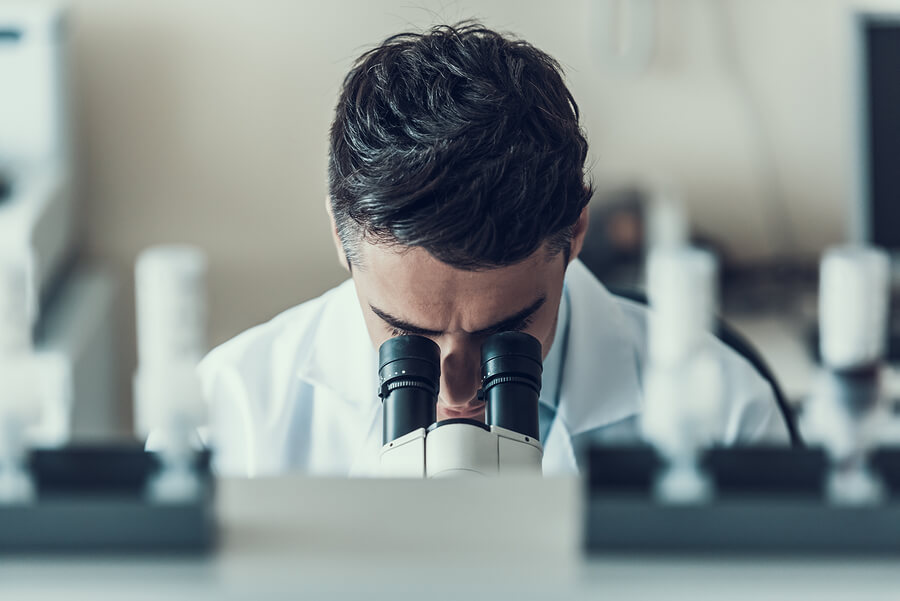Although there are already many effective treatment approaches for addiction, the field of substance abuse recovery is always evolving. Scientists are still working to understand the causes, symptoms and best ways to combat addiction. Researching how addiction works opens up possibilities for faster, more effective ways to treat addiction through new technologies and alternative methods.
Cutting edge scientific areas including genetics and brain imaging are helping to advance scientists’ understanding of addiction on a deeper level. The science of addiction is much more than personality, circumstances and other factors that may be at play when someone develops problems with substance abuse. Studying the impact of genetics, the structure of the brain and other aspects of addiction is useful in developing treatments.
In the past, there were many myths and misunderstandings about what caused addiction and why it led to certain behaviors and changes. Scientists have studied addictive behavior since the 1930s and have broadened the knowledge of addiction and how it impacts individuals. Researchers continue to expand their expertise on addiction and make groundbreaking new discoveries every day.

Genetics and Biological Risk Factors
With evidence gained from many different studies, scientists began to understand that addiction is a medical disorder that is influenced by genetics. It is now mostly common knowledge that addictive traits can be passed down from parents and other relatives to children. Families that have addiction issues can find it hard to break the cycle as these genetic vulnerabilities make it more difficult to cope with substance abuse.
Researchers have estimated that genetics actually contributes from 42 to 70 percent of the risk for certain drug addictions. They have found that this biological risk can also be influenced by the environment which can change the expression of addiction genes. In genome studies, scientists have been examining whether people with addictions share certain gene variants so they can identify the link between substance abuse and specific genes.
Scientists have also discovered that drug use can alter gene expression in the brain, particularly in the reward pathway. The changes that drugs cause in the brain can lead to traits of addiction such as sensitivity to the rewarding effects of drugs. These kinds of genetic changes can even be passed on to the next generation.
Brain Imaging and Recovery
Understanding how addiction changes the brain and mapping the brain of addicts can be useful in exploring causes of substance abuse. Brain-imaging can be used to detect biomarkers for vulnerability to addiction to help understand cravings and other aspects of the disorder. New techniques for brain-imaging also help compare the functional brain networks of people who use drugs and those who do not.
According to research, people who use drugs like cocaine tend to have reduced connectivity in certain brain circuits and between the two hemispheres of the brain. Brain imaging has also revealed how the brains of drug users start to recover after a period of abstinence from drug use. Grey matter in the brain tends to increase again once a person quits abusing substances and remains sober.
Brain imaging during treatment can help people see how much their abstinence is improving their physical and mental health. Former drug users who become sober start to restore the functioning of activity in their brain and increase their ability to perform motor control tasks. These insights into the brain and how treatment affects the brain can be useful in tracking a person’s recovery.
Technology for Treatment
Addiction recovery technology is a growing field of treatment that offers alternative methods that can be helpful in reducing cravings. As technology continues to advance, people are able to use faster and more immediate methods of managing their addictions. Options like the use of apps, telemedicine and virtual reality can all be instrumental in promoting recovery and a healthier lifestyle.
People in residential treatment programs now combine apps with their regular therapy sessions as a way to keep them on track and stay connected to their goals at all times. While many of the typical phone apps that people use can be damaging for mental health, recovery apps are designed to help people stay motivated and focus on their wellbeing. Many recovery apps are medically approved by the FDA to be used for addiction treatment as part of a larger program.
Patients in addiction recovery can even use technology to talk to a therapist through video chat, emails, apps and other methods. Being able to contact a therapist at any time can be crucial for people when they are experiencing a crisis. Other techniques like virtual reality can help patients cope with potential situations in a controlled environment in order to practice for real life.
As researchers continue to study addiction and new technologies become available, recovery treatment progresses to help more people succeed in becoming sober.




